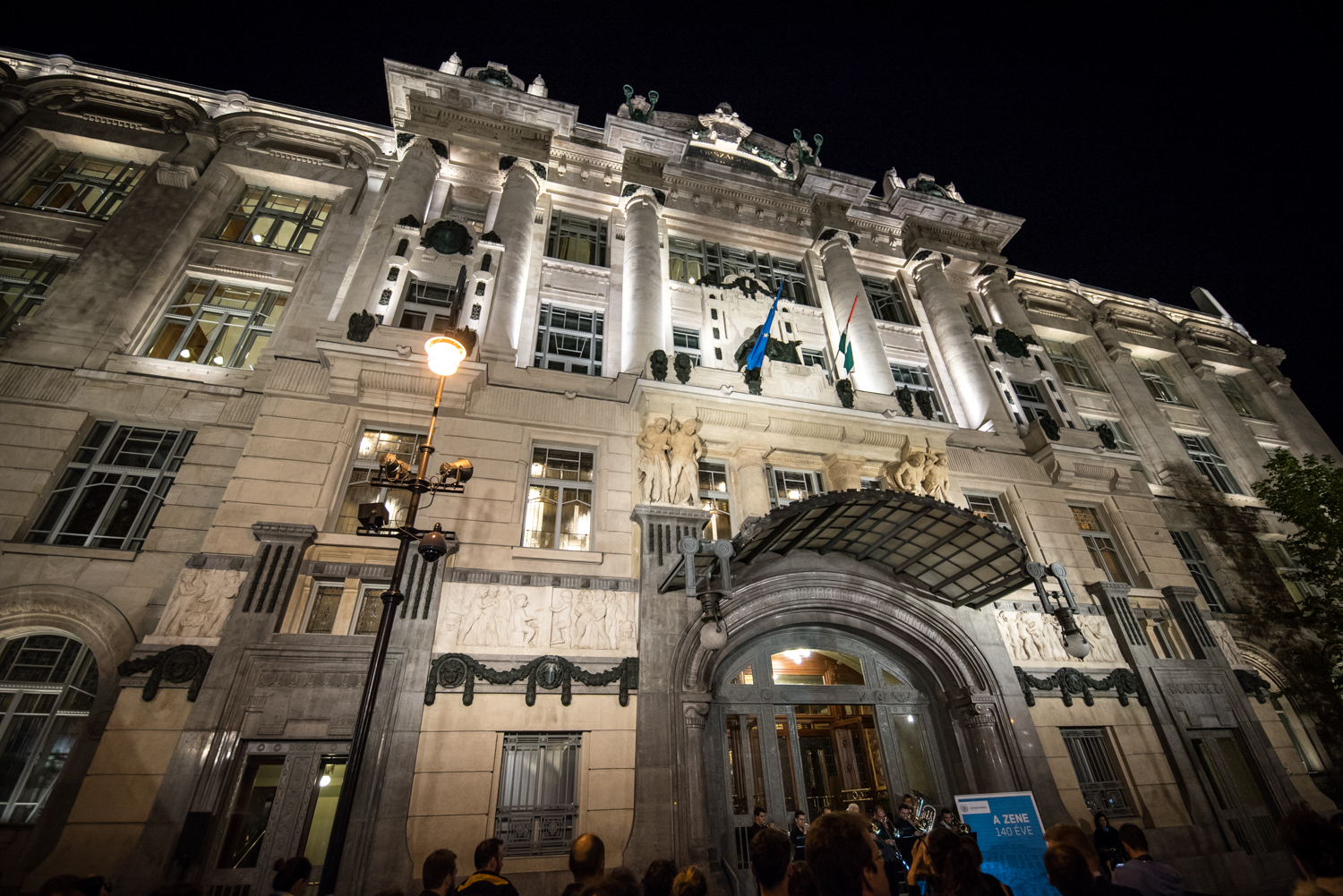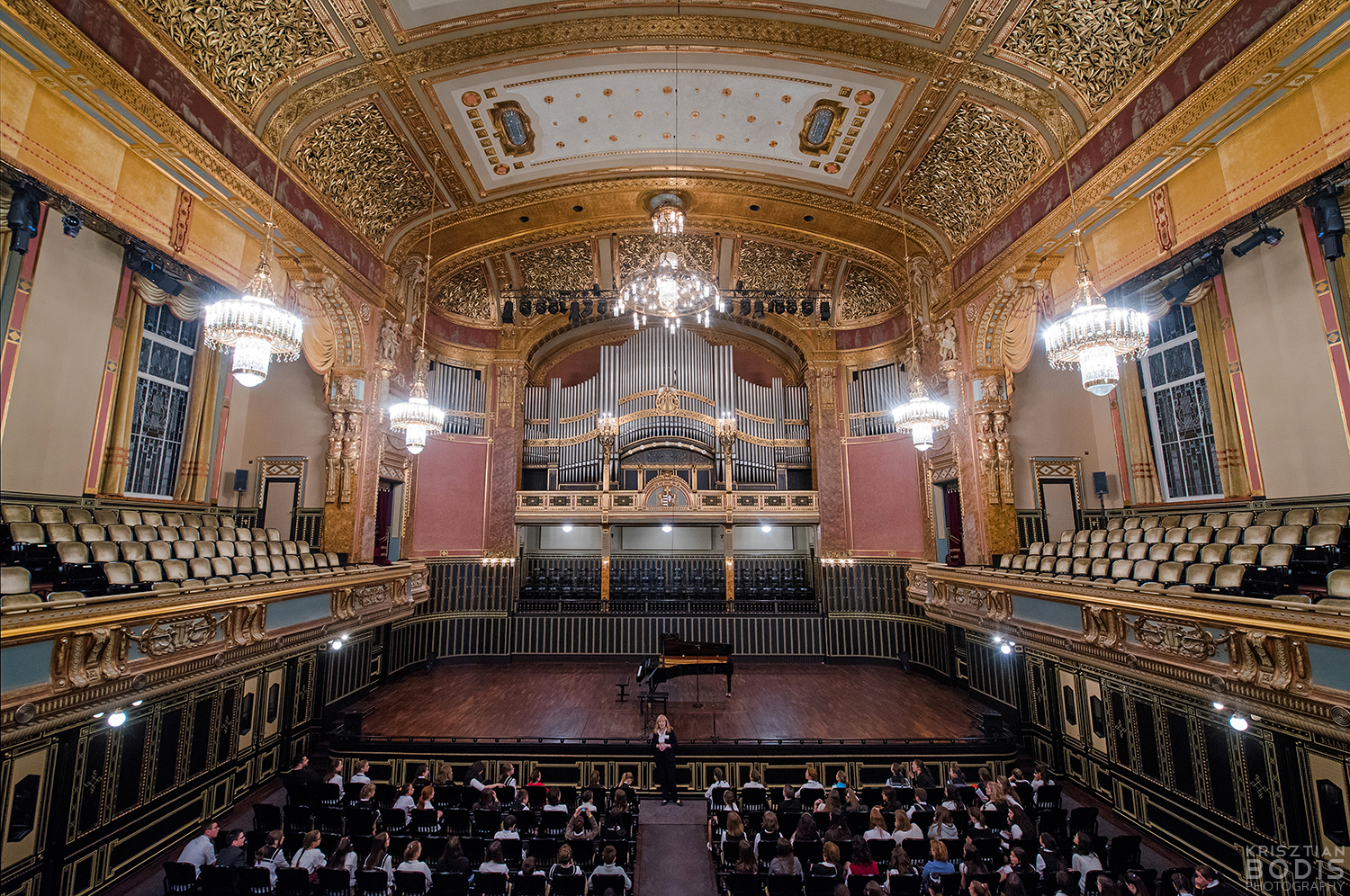1/7
Budapest Music Center
Featuring superb acoustics, this 300-seat concert hall has been especially designed for chamber performances within the contemporary Budapest Music Center, a multifunctional events location. Classical masters often honoured here include Mozart, Haydn and Stravinsky. The same building is also home to the Opus Jazz Club, regularly hosting key exponents of the genre from around the world.
2/7
Erkel Theatre
Listed among the highest-capacity auditoriums in Budapest, the Erkel Theatre is the sister institution of the Hungarian State Opera, whose performances are being staged here while the opera house is renovated. This less ornate building has welcomed such names in classical music as the Vienna Philharmonic and Toscanini. Hungarian composer Béla Bartók also appeared on stage here. The concert hall can accommodate 1,819 spectators.
3/7
Franz Liszt Music Academy
World-famous music conservatory, the Liszt Academy, was built in 1907 in Art-Nouveau style. Founded by Franz Liszt himself at the school’s older Andrássy út location, this institution fostered such prominent Magyar maestros as Zoltán Kodály and Béla Bartók. The interior of the current building is richly decorated with frescos and mosaics, its three-storey Grand Hall an outstanding example of classical concert venues in Budapest. After several years of restoration, the hall’s vintage Voit organ is now fully operational once more.
4/7
Müpa
Winner of several international architectural awards, south Pest cultural venue Müpa contains the Béla Bartók National Concert Hall, widely revered for its outstanding acoustics, engineered in collaboration with renowned specialist Russell Johnson. Featuring a contemporary design, this performance venue can seat 1,600 people, while its pipe organ is among the largest in Europe. The concert hall is usually booked years in advance for the biggest world stars and orchestras.
5/7
Pesti Vigadó
The crown jewel of the panoramic Danube Promenade, the Pesti Vigadó hosted legendary composers from Johann Strauss to Richard Wagner and Franz Liszt. Seriously damaged during World War II, this eclectic edifice underwent a complete restoration to re-establish itself as a centre of Budapest culture. Its elaborate concert hall, the former ballroom of the 19th-century elite, continues to attract leading conductors and performers of classical music from around the world.
6/7
Várkert Bazaar
Designed by architect Miklós Ybl of Opera House fame to connect the Buda riverbank with the Royal Palace, this beautifully renovated landmark projects a neo-Renaissance style from the outside, and a contemporary design within. Part of the city’s UNESCO World Heritage sites, Várkert Bazaar embraces a multifunctional events space, often hosting concerts. The hall's black-coloured walls are covered with acoustic wood panels that also contain tiny LED lights. It’s also where regular Midnight Music events take place, popular among discerning night owls.










